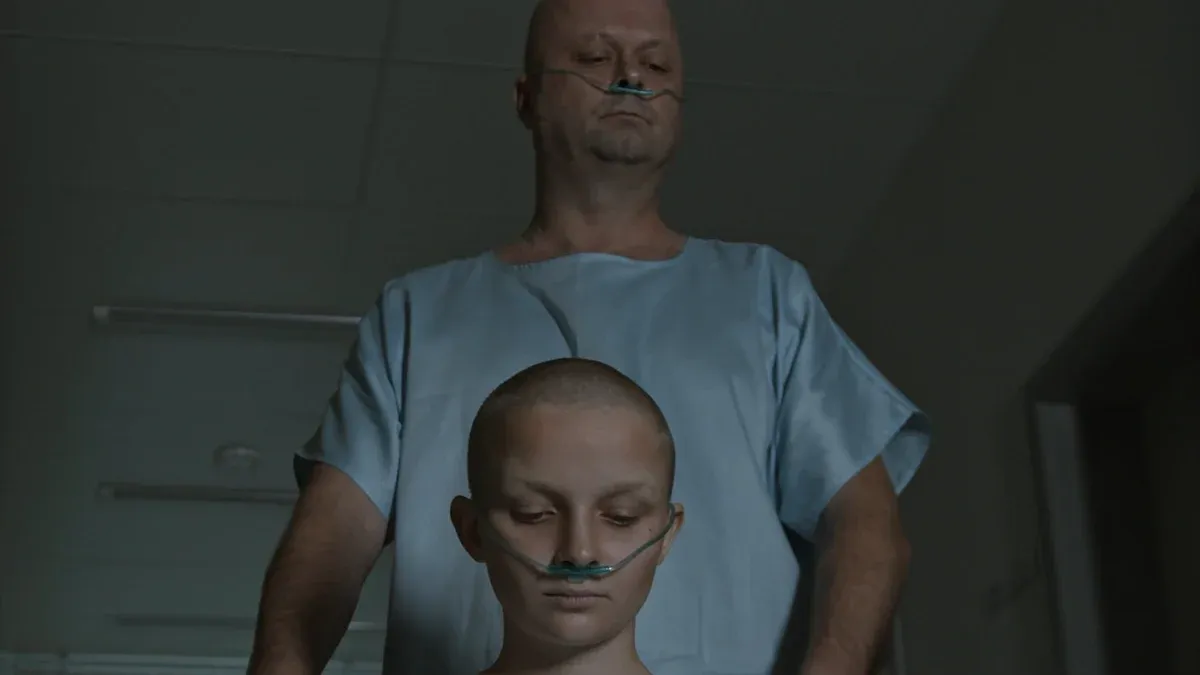Why Immunotherapy Isn't Effective for Everyone

Immunotherapy has transformed cancer treatment by harnessing your immune system to target and destroy cancer cells. However, it doesn’t work for everyone. Response rates for immunotherapy drugs range from 20% to 40%, and fewer than 15% of patients show a successful anti-cancer immune response. This variability raises the question: Is Immunotherapy a One-Size-Fits-All Cancer Treatment? As one expert explains, “We don’t have any absolute 'yes-no' factors to say this patient would be cured or that patient won’t.” Understanding these challenges is key to improving outcomes for more patients.
Key Takeaways
Immunotherapy helps your immune system fight cancer, but it doesn’t help everyone. Success rates range from 20% to 40%.
Things like gene changes and certain immune cells can change how well immunotherapy works for someone.
Choices like eating healthy and managing stress can make immunotherapy work better. A good lifestyle helps your immune system stay strong.
Using immunotherapy with other treatments, like chemotherapy, can work better by fighting cancer in different ways.
Personalized medicine, like testing genes and biomarkers, helps doctors choose the best treatment for each person.
Is Immunotherapy a One-Size-Fits-All Cancer Treatment?
How Immunotherapy Works
Activating the Immune System to Fight Cancer
Immunotherapy works by empowering your immune system to recognize and attack cancer cells. Normally, your immune system identifies and destroys harmful invaders like viruses or bacteria. However, cancer cells often evade detection by disguising themselves as normal cells. Immunotherapy removes these disguises, enabling your immune system to target the cancer effectively. For example, checkpoint inhibitors block proteins that prevent T-cells from attacking tumors, while CAR-T therapy modifies your T-cells to better recognize and destroy cancer cells.
Types of Immunotherapy
There are several types of immunotherapy, each designed to address cancer in unique ways:
Checkpoint inhibitors: These drugs release the "brakes" on your immune system, allowing it to attack cancer cells more aggressively.
CAR-T therapy: This approach involves engineering your T-cells in a lab to enhance their ability to fight cancer.
Cancer vaccines: These stimulate your immune system to recognize cancer-specific antigens.
Cytokine therapy: This method boosts immune cell activity using proteins like interleukins or interferons.
Each type has its strengths and limitations, making it essential to match the treatment to the patient's specific needs.
Why It’s Not Universal
Variability in Patient Responses
Not all patients respond to immunotherapy in the same way. Some factors, like the presence of functional T-cells, play a critical role. Patients with exhausted or insufficient T-cells may not benefit from treatments like checkpoint inhibitors. Additionally, studies show that higher levels of CD5+ dendritic cells in tumors improve the likelihood of a positive response. Biomarkers such as tumor mutational burden (TMB) and microsatellite instability (MSI) also influence outcomes. These variations highlight why immunotherapy cannot be a one-size-fits-all solution.
Success Rates and Limitations
While immunotherapy has shown remarkable success in some cases, its overall effectiveness remains limited. Response rates vary widely, with only 20% to 40% of patients benefiting from these treatments. Even among those who respond, the results may not be long-lasting. Factors like the tumor's ability to suppress immune activity and the patient's overall health can further limit success. These challenges underscore the need for more personalized approaches to improve outcomes.
Biological and Environmental Factors Limiting Effectiveness

Tumor Microenvironment
How Tumors Evade the Immune System
Tumors have clever ways of avoiding your immune system. They can disguise themselves by reducing the expression of antigens, which are the markers your immune cells use to identify threats. Some tumors even create a physical barrier of dense tissue, making it harder for immune cells to reach them. Additionally, tumors can release chemicals that confuse or deactivate your immune cells, allowing cancer to grow unchecked.
Role of Immune Suppression
The tumor microenvironment often suppresses your immune system. Tumors can recruit regulatory T-cells (Tregs) and myeloid-derived suppressor cells (MDSCs), which weaken your immune response. These cells release substances that block the activity of T-cells and other immune fighters. This suppression makes it difficult for immunotherapy to work effectively, especially in patients with already weakened immune systems.
Genetic and Immune System Variability
Genetic Mutations and Their Impact
Your genetic makeup plays a significant role in how well immunotherapy works. Some genetic mutations in tumors make them more resistant to immune attacks. For example, mutations in the PD-L1 gene can help tumors avoid detection by your immune system. On the other hand, tumors with a high mutational burden often respond better to immunotherapy because they produce more abnormal proteins that your immune system can target.
Differences in Immune System Responses
Not everyone’s immune system responds the same way to immunotherapy. Patients with insufficient or non-functional T-cells may not benefit from treatments like checkpoint inhibitors. Studies show that patients with higher levels of CD5+ dendritic cells in their tumors are more likely to respond positively. These differences highlight why immunotherapy is not a one-size-fits-all cancer treatment.
Lifestyle and Systemic Factors
Influence of Diet, Stress, and Health
Your lifestyle can affect how well immunotherapy works. Factors like diet, stress, and overall health influence your immune system’s strength. For example, chronic stress can weaken your immune response, while a balanced diet rich in nutrients can support it. Age and pre-existing health conditions, such as diabetes or heart disease, also play a role in determining treatment success.
Access to Early Diagnosis and Treatment
Early diagnosis and timely treatment significantly improve your chances of benefiting from immunotherapy. Patients who start treatment at an advanced stage often face more challenges, as their tumors may have already developed stronger immune evasion mechanisms. Access to healthcare and diagnostic tools remains a critical factor in ensuring better outcomes for all patients.
Note: Lifestyle factors, age, and comorbidities are known to influence the effectiveness of checkpoint inhibitors. Addressing these factors can help improve the success rates of immunotherapy.
Advancements in Overcoming Limitations
Combination Therapies
Pairing Immunotherapy with Other Treatments
Combining immunotherapy with other treatments can improve its effectiveness. Researchers have found that pairing immunotherapy with chemotherapy, radiation, or targeted therapies attacks cancer from multiple angles. This approach makes it harder for cancer cells to adapt and resist treatment. For example, ongoing clinical trials are exploring how combining checkpoint inhibitors with CD73 inhibitors can overcome resistance in glioblastoma, a highly aggressive brain cancer. These strategies aim to enhance the immune system's ability to fight cancer while addressing the tumor's defense mechanisms.
Using Multiple Immunotherapy Approaches
Using multiple immunotherapy methods together can also yield better results. For instance, a clinical trial under the Prostate Cancer Moon Shot® program is testing the use of multiple checkpoint inhibitors to treat advanced prostate cancer. Early results show promise, suggesting that combining different immunotherapy drugs can target cancer more effectively. This approach leverages the strengths of each therapy to overcome the limitations of individual treatments.
Personalized Medicine
Genetic Profiling for Tailored Treatments
Genetic profiling allows doctors to customize immunotherapy based on your unique genetic makeup. Studies show that high tumor mutational burden (TMB) and microsatellite instability (MSI) correlate with better outcomes for patients receiving immune checkpoint inhibitors. By analyzing these genetic markers, doctors can identify which patients are most likely to benefit from specific treatments. This personalized approach ensures that you receive the most effective therapy for your cancer type.
Biomarker Testing to Predict Outcomes
Biomarker testing plays a crucial role in predicting how well you might respond to immunotherapy. Researchers have developed highly sensitive assays to identify tumor-infiltrating lymphocytes (TILs), which are immune cells capable of targeting cancer mutations. This method has been applied to various cancers, including stomach, ovarian, and breast cancers. By identifying these biomarkers, doctors can better predict treatment outcomes and refine their strategies.
Emerging Research and Technologies
AI and Machine Learning in Treatment Planning
Artificial intelligence (AI) and machine learning (ML) are revolutionizing cancer treatment. These technologies analyze vast amounts of data to identify patterns and predict which therapies will work best for you. Experts believe that AI and ML, combined with high-resolution spatial technologies, will uncover new predictive biomarkers and immunotherapy targets. This advancement could lead to more effective and personalized treatment options in the future.
Development of New Immunotherapy Drugs
The development of new immunotherapy drugs continues to expand treatment possibilities. Since 2014, several groundbreaking drugs like pembrolizumab (Keytruda®) and nivolumab (Opdivo®) have been approved for treating cancers such as melanoma, lung, and kidney cancers. These advancements demonstrate the potential of immunotherapy to address a wider range of cancers. Ongoing research focuses on creating drugs that can overcome resistance and improve patient outcomes.
The Future of Cancer Treatment

Expanding Access to Immunotherapy
Reducing Costs and Increasing Availability
Making immunotherapy accessible to more patients requires reducing costs and increasing availability. High treatment costs often limit access, especially in low-income communities. Initiatives like the Immunotherapy Patient Summit, launched in 2016, aim to bridge this gap. These summits connect patients and caregivers with experts, empowering them to make informed decisions about treatment options. Additionally, programs like the Diversity and Inclusion Fellowship, introduced in 2021, promote racial diversity in immunology research. By supporting talented scientists from underrepresented groups, these efforts address disparities in treatment outcomes.
Efforts to provide resources in multiple languages also play a crucial role. For example, Spanish-language patient summits and websites launched in 2021 help Spanish-speaking patients access vital information about immunotherapy and clinical trials. These initiatives demonstrate how reducing barriers can improve access to life-saving treatments.
Addressing Disparities in Treatment Outcomes
Disparities in treatment outcomes often stem from unequal access to healthcare and clinical trials. Expanding outreach programs and increasing awareness about immunotherapy can help address these gaps. Early diagnosis and timely treatment are critical for improving success rates. Programs that educate patients about the importance of early intervention can lead to better outcomes. By focusing on inclusivity and affordability, you can ensure that more people benefit from advancements in immunotherapy.
Continued Research and Collaboration
The Role of Global Scientific Efforts
Global collaborations drive progress in immunotherapy research. Initiatives like the Cancer Moonshot, launched by then-Vice President Joseph Biden, place immunotherapy at the forefront of cancer treatment strategies. This program aims to reduce cancer deaths by fostering innovation and collaboration among researchers worldwide. Similarly, the Technology Impact Award supports partnerships that bridge the gap between technology development and clinical applications. These efforts accelerate the discovery of new treatments and improve patient outcomes.
Partnerships Between Researchers, Clinicians, and Patients
Collaboration between researchers, clinicians, and patients is essential for advancing immunotherapy. Patients play a vital role by participating in clinical trials and sharing their experiences. Clinicians contribute by identifying real-world challenges and providing feedback to researchers. Together, these partnerships create a cycle of continuous improvement. By working together, you can help shape the future of cancer treatment and make immunotherapy more effective for everyone.
Immunotherapy offers hope as a groundbreaking cancer treatment, but it doesn’t work for everyone. Biological factors, like genetic mutations, and environmental influences, such as lifestyle, limit its effectiveness. You can look forward to advancements in personalized medicine and combination therapies, which aim to improve outcomes.
Continued research and collaboration between scientists, clinicians, and patients remain essential. These efforts will help make immunotherapy more accessible and effective for a broader range of people. By staying informed, you play a role in shaping the future of cancer treatment.
FAQ
What types of cancer respond best to immunotherapy?
Cancers like melanoma, lung cancer, and kidney cancer often respond well to immunotherapy. These cancers typically have high mutational burdens, making them easier for your immune system to recognize and attack. However, responses vary based on individual factors.
Can immunotherapy cause side effects?
Yes, immunotherapy can cause side effects. Common ones include fatigue, skin rashes, and flu-like symptoms. In rare cases, it may trigger autoimmune reactions where your immune system attacks healthy tissues. Always discuss potential risks with your doctor.
How long does immunotherapy take to work?
Immunotherapy timelines vary. Some patients see results within weeks, while others may need months. Your response depends on factors like cancer type, treatment method, and your immune system's condition. Regular monitoring helps track progress.
Is immunotherapy covered by insurance?
Many insurance plans cover immunotherapy, but coverage depends on your policy and cancer type. You should check with your provider to confirm what’s included. Financial assistance programs may also help reduce costs.
Can immunotherapy be combined with other treatments?
Yes, combining immunotherapy with treatments like chemotherapy or radiation can improve effectiveness. This approach targets cancer from multiple angles, enhancing your immune system's ability to fight. Speak with your oncologist to explore combination options.
Tip: Always ask your healthcare team about clinical trials. They may offer access to cutting-edge immunotherapy treatments tailored to your needs.
See Also
Exploring Adrenocortical Adenoma: Symptoms And Available Treatments
Lymphomatoid Granulomatosis: Key Symptoms And Treatment Options
Why Cancer Returns After Remission Explained
Identifying Angioimmunoblastic T-Cell Lymphoma: Symptoms Explained
Understanding Leydig Cell Tumors: Causes And Key Information

